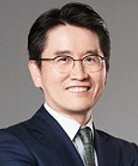You should change lanes to pass
You should change lanes to pass
Posted October. 28, 2019 07:34,
Updated October. 28, 2019 07:34
President Moon Jae-in’s budget speech at the National Assembly took place last Tuesday between the finance ministry and the Bank of Korea’s announcements of the economic growth rate. Finance Minister Hong Nam-Ki said last Sunday that the country is expected to grow this year by 2.0 to 2.1 percent while the Bank of Korea put the growth rate of the third quarter at 0.4 percent on Thursday. An economic growth rate reveals if the country’s economic policies are working. Given that South Korea grew 3.2 percent and 2.7 percent in the last two years and is expected to grow only by around 1 percent this year, President Moon should have included consideration and introspection for the outcome in his address.
Instead, Moon said that “the world finds our economy to be more robust than we do ourselves.” However, the robust parts of our economy are mostly attributed to the efforts of the previous administrations. For example, the World Economic Forum’s Global Competitive Index, which the president mentioned in the speech, evaluates macroeconomic stability based on finance and foreign exchange reserves. It was thanks to the past administrations’ efforts that South Korea could top the ranking despite increased government spending during the Moon administration. President Moon also stressed that the country dominated the ICT adoption field for two years in a row, but it remains uncertain how much the current administration has contributed to the result.
If the government wanted to stress its role for the robust economy, it should have showed the result of its signature income-led growth policy. Yet, such evidence cannot be found in the Bank of Korea’s statistics. The president told that the income of those in the lowest bracket increased, but earned income has rather plunged.
In fact, President Moon did not bring up the word “growth rate” even once during his speech while mentioning “fairness” 27 times. Taking into consideration that the word “fairness” appeared 10 times during Moon’s budget address last year, this signals a direction of economic policies that Moon aims to go for in the remaining term in office. Whereas the president seems to associate fairness with innovation, growth, and future, businesses may think of regulations, political strife, and the past when hearing the word as policies calling for fairness have thus far presented such obstacles to businesses.
Indeed, few business leaders seemed to remember the fair economy or peace economy after the president’s budget speech. It may be not because they have no interest but because they have no expectations for the concepts. Capital moves based on the expected rate of return, not the current rate of return. When expectations are low, businesses tend to leave. There is even a joke that if you have already moved your firm overseas, you get 100 points, and if you are preparing for a move, you get zero points. It is minus 100 points if you are trying to return to South Korea. A man who operates a place of business in China said he would never come back to the country, adding that if necessary, he would rather move the plant to somewhere in Southeast Asia. It seems many businesses feel the same way as events for promoting emigration are full of people these days.
President Moon does not have much time left. Though he did not say any of this during the speech, his administration should lift regulations, carry out labor reforms, and adjust the industrial structure in a swift manner. To do so, an accurate diagnosis should be first made. For instance, it is not an accurate assessment of the situation that “the power of innovation” led to “investment in new business ventures reaching an all-time high” last year. Also, the chairman of the Presidential Committee on the Fourth Industrial Revolution said the current 52-hour workweek policy is taking away the rights to work from people at startups who are more than willing to spend over 52 hours a week for their own interest. Even if more funds have flown to new ventures, these ventures cannot make the best of them, being dragged by unrelated red tapes.
If the president has not given up on achieving economic growth, and if he truly wants the economy to grow, he should first change the policies, as if you should first change lanes to pass on roads. Replacing the income-led growth with the fair economy or peace economy is not by any means desirable.
koh@donga.com







